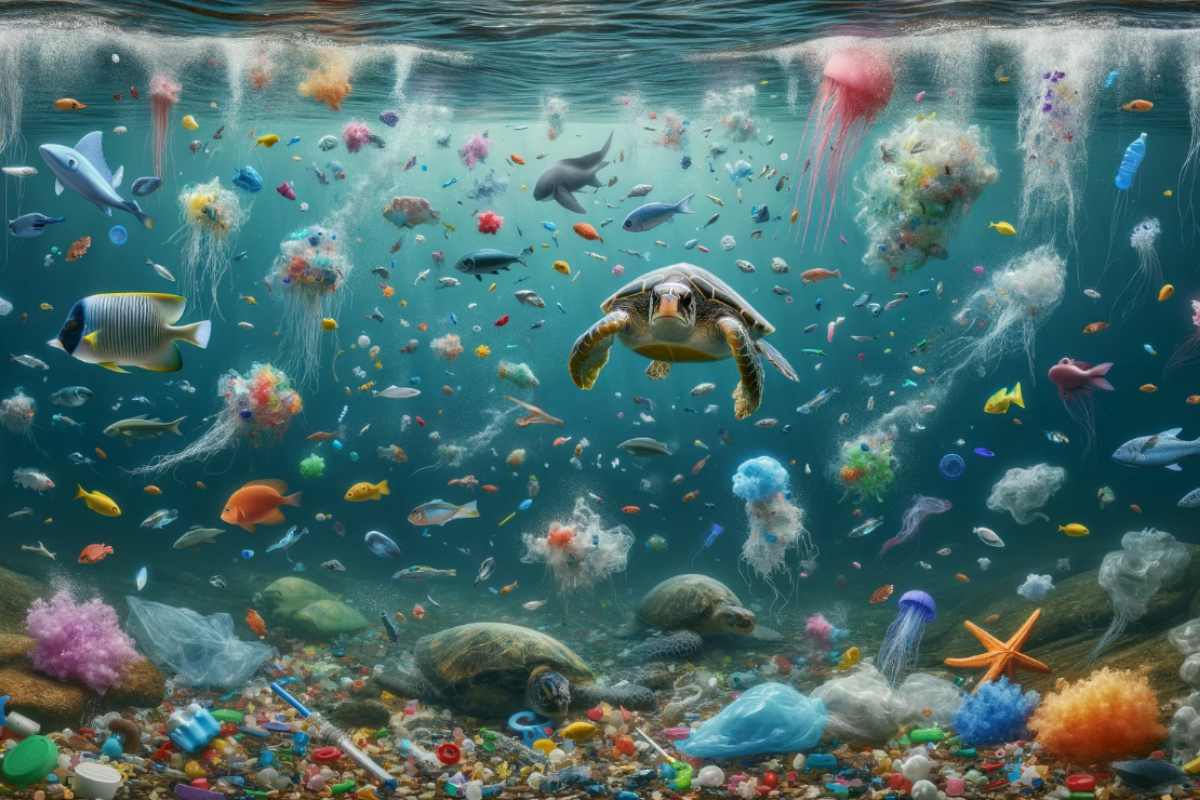Plastic pollution is reaching record levels and the environment and marine animals in particular are being affected: something needs to be done immediately before the most dire projections become reality

The issue of plastic pollution in the oceans is severe and continuously worsening, as evidenced by recent scientific data and research. To illustrate the scale, the amount of microplastics in the oceans far exceeds the number of stars in the Milky Way, with about 51 trillion fragments floating on the surface alone. These microplastics, originating from the degradation of various types of plastic, pose a significant threat to marine and coastal ecosystems.
The situation is so dire that, without drastic measures, by 2050 the amount of plastic in our seas could outweigh all the fish. This projection, coupled with the alarming forecast that 99% of marine bird species will have ingested plastic by the same year, underscores the urgency of addressing this issue.
Currently, 60% of marine bird species and 90% of individuals are already exposed to plastic debris. This impact stems from marine animals’ inability to distinguish between plastic objects and food, making the ingestion of microplastics inevitable.
Less than 10% of produced plastic is recycled
Despite these alarming statistics, the production and consumption of plastic bottles continue to rise, with one million bottles purchased every minute worldwide. Over 580 billion bottles are sold globally each year. Less than half of these bottles are recycled, while the rest end up in the environment, contributing to the increasing plastic contamination in the oceans.
This is the crux of the problem: poor recycling. In total, about 7.7 billion tons of plastic waste have been produced, yet less than 10% of this plastic has been recycled. Most ends up in landfills or is incinerated, contributing to air pollution and climate change.
Moreover, microplastics not only contaminate marine ecosystems but can also enter the food chain, threatening the health of marine organisms and potentially even that of humans who consume fish.
The inadequate management of plastic waste and its continued dispersion in terrestrial and marine environments require immediate and significant action. Measures such as the introduction of stricter laws on plastic production and recycling, the implementation of more efficient recycling technologies, and a greater global effort to clean up the oceans can help mitigate this crisis. However, without a substantial change in how we produce, use, and recycle plastic, the outlook for our marine ecosystems and our health remains bleak.
